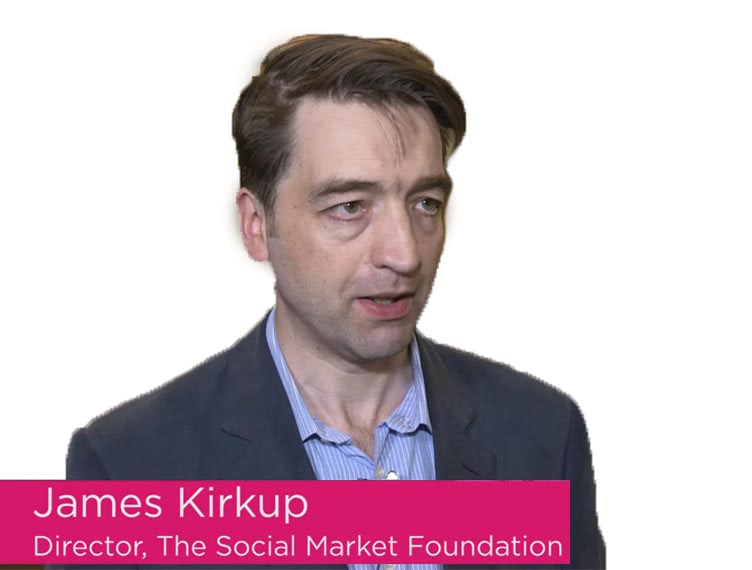Leave voters need better Further Education, more than free trade deals

Better further education services and leadership are more important to Leave-voting parts of Britain than free trade deals after Brexit, a think-tank says today (4 Apr).
People from low-income backgrounds are disproportionately likely to attend FE colleges and other providers, yet politicians pay little attention to the leadership of those colleges, the Social Market Foundation said.
The Social Market Foundation published its report as the Brexit debate turns on participation in a customs union and Britain’s freedom to strike its own trade deals with other countries.
The SMF said that improving the quality of further education is likely to be more important to the lives and prospects of people in Leave-voting areas than the possibility of such trade deals.
Further education colleges, sixth-forms and other providers predominantly cater for people from the lower-income backgrounds that are associated with voting for Brexit.
Of the 2.2 million people aged 19 and over studying in FE institutions, more than half are from the lowest income households.
Almost a third of all FE students — 683,000 people — are from the most deprived 20% of the population. Only 12% — or 266,000 people – of students in FE come from the wealthiest 20% of households.
FE serves other marginalised groups too. 22% of adult learners participating in further education in 2017/18 were from an ethnic minority background. 16% had a learning difficulty or disability.
Despite its importance, funding and numbers have fallen dramatically in 19+ education, with the total number of learners falling from 4 million in 2005 to 2.2 million in 2016. Total funding has fallen by about 45% in real terms since 2009-10.
This background makes good FE leadership all the more important, the SMF said in a report that is part of an ongoing study conducted with the Further Education Trust for Leadership.
Compared to studying in a college led by a low performing leader, a successful leader can improve the likelihood of a student achieving a Level 2 qualification by 15.9 percentage points and a Level 3 by 14.1 percentage points. (Level 2 is the equivalent of 5 good GCSEs).
Many FE providers are in financial trouble. As of summer 2018, there were 37 colleges with a published notice to improve their financial health, with reports that the number with financial warnings and need of assistance could rise to 100 (out of 269) in the future. A very large proportion of colleges are running deficits.
The Association of College’s analysis of FE finances, using a method developed by the National Audit Office, found that 40% of colleges were in deficit in 2016-17.
According to NatCen Social Research in 2016, education is closely associated with Brexit positions: just 26% of people with a university degree voted to Leave, while 61% of people who finished education with GCSEs or their equivalent did backed Brexit. Among people with no formal qualifications, 78% voted Leave.
James Kirkup, SMF Director, said:
“Education is central to the Brexit story, but politicians pay far too little attention to the parts of the education system that matter most to the people and places most strongly associated with voting to Leave.
“There is, rightly, a huge focus on the quality of leadership in schools and universities, but nowhere near enough interest in FE leadership. Better college leaders deliver better results for FE students who can then do better in the jobs market.
“Better FE leadership that delivers better results, skills and jobs is likely to matter more to the lives of many people in Leave-voting groups and areas than the prospect of lengthy free-trade negotiations with far-off countries.
“Whether they are for or against Brexit, politicians who say they are championing the interests of Leave voters should pay more attention to the social, economic and educational factors underpinning the Brexit vote, starting with FE.
“If you really want to help, spend less time squabbling about free trade and sovereignty and focus more on further education and the people who use it.”
The report, “Leading skills: Exploring leadership in Further Education colleges” was supported by the Further Education Trust for Leadership, a registered charity. The SMF retained full editorial independence and is committed to naming all its financial supporters.
About The Social Market Foundation (SMF): A non-partisan think tank. We believe that fair markets, complemented by open public services, increase prosperity and help people to live well. We conduct research and run events looking at a wide range of economic and social policy areas, focusing on economic prosperity, public services and consumer markets. The SMF is resolutely independent, and the range of backgrounds and opinions among our staff, trustees and advisory board reflects this.











Responses